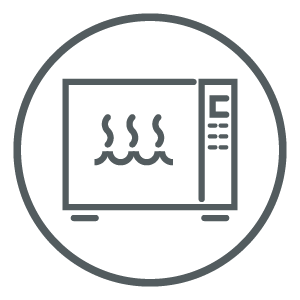 Sterilization & Disinfection
Sterilization & Disinfection
FDA issues statement on trach tube shortages
Editor's Note The Food & Drug Administration on April 12 issued a statement about the agency’s efforts to mitigate the shortage of Smiths Medical’s Bivona tracheostomy tubes, especially the pediatric tubes. The shortage is a result of the closure of a large ethylene oxide sterilization facility in Willowbrook, Illinois, and there…
'Coming clean' in the SPD requires collaboration and competency—Part 1
Contaminated surgical instruments made ECRI Institute’s 2019 annual top 10 list of health technology hazards, coming in at number five: “Mishandling flexible endoscopes after disinfection can lead to patient infections.” Number two on the list in 2018 was “Endoscope reprocessing failures continue to expose patients to infection risk.” It’s not…
Elevating standard of endoscope reprocessing with terminal sterilization of duodenoscopes
Editor's Note Terminal sterilization of duodenoscopes can be achieved with a hydrogen peroxide-ozone sterilizer, this study finds. A sterility assurance level of 10-6 was achieved under laboratory worst-case conditions and under clinical conditions using a hydrogen peroxide-ozone sterilizer with regulatory clearance for terminal sterilization of duodenoscopes (STERIZONE VP4, TSO3 Inc,…
'Noncritical' OR items deserve due diligence in disinfection
Much emphasis has been placed on high-level disinfection over the past several years; however, low- and intermediate-level disinfection are also performed in healthcare facilities and are an important part of an infection prevention program. Noncritical items, defined by the Spaulding Classification as those that may contact intact skin, are cleaned…
New structure puts SPD staff on firmer footing
Perioperative leaders, including those in the sterile processing department (SPD), need to know when to make sweeping—not just incremental—changes to improve workflow and optimize the talents of their staff. Sometimes gains in productivity and staff satisfaction depend not only on identifying process improvements but also on placing staff in areas…
FDA issues statement on updated rates of duodenoscope contamination
Editor's Note The Food and Drug Administration (FDA) on December 10 issued a statement on an updated safety communication about rates of duodenoscope contamination obtained from preliminary postmarket data. Interim results from sampling studies from device manufacturers−Olympus, Fujifilm, and Pentax− indicate higher-than-expected contamination rates after reprocessing. Up to 3% of…
Research backs changes to AORN's Guideline for Sterilization
AORN’s updated Guideline for Sterilization is based on a recent review of evidence in peer-reviewed journals and regulations from 2012 to 2017. In addition to guidance for sterilizing reusable medical devices to be used in perioperative and procedural settings, the updated guideline points to findings that substantiate current practices, and…
DVN GL announces first US sterile processing certification
Editor's Note Healthcare accreditation organization DNV GL Healthcare on November 7 launched the first sterile processing program certification in the US. The program recognizes excellence in an organization’s sterile processing department within the scope of infection prevention and control, surgical services, endoscopic services, and related departments. An important part of…
Joint Commission refines scoring on HLD, sterilization
Editor's Note The Joint Commission on September 5 announced it has refined its scoring for high-level disinfection (HLD) and sterilization to focus on process steps that post the highest risk to patients if they fail. The new scoring revisions apply to: soiled instruments enzymatic solution transportation of instruments instruments in…
Top 10 Patient Safety Concerns for 2018
As healthcare strives to become an industry of high-reliability organizations, identifying problems proactively is key. ECRI Institute’s annual Top 10 Patient Safety Concerns for Healthcare Organizations list highlights looming patient safety challenges and offers resources for addressing them. In selecting this year’s list, ECRI Institute relied on data regarding events…

 Free Daily News
Free Daily News